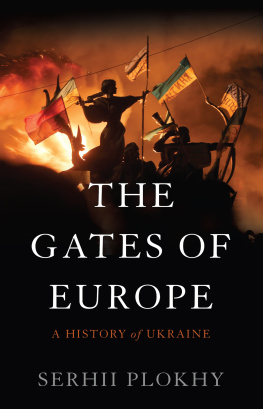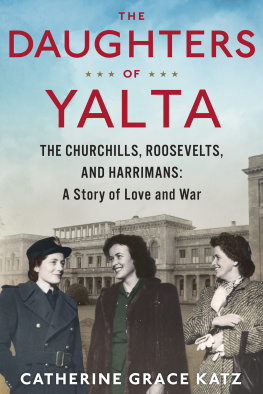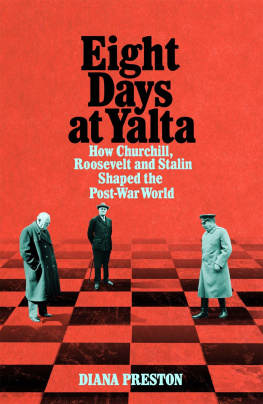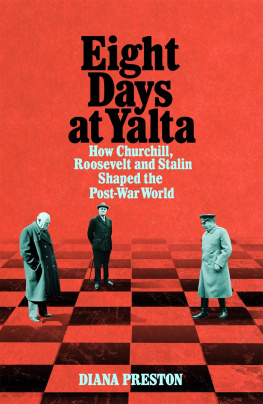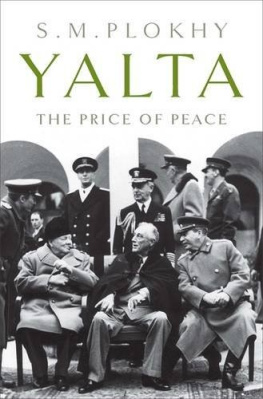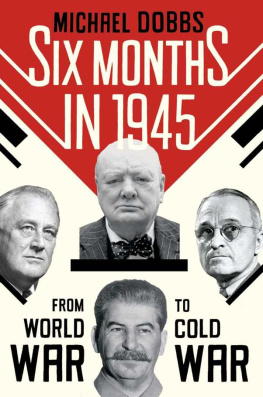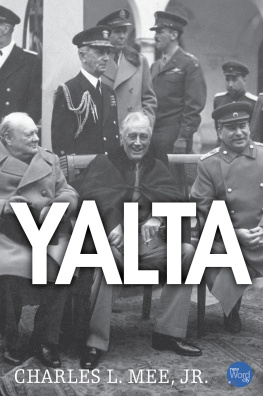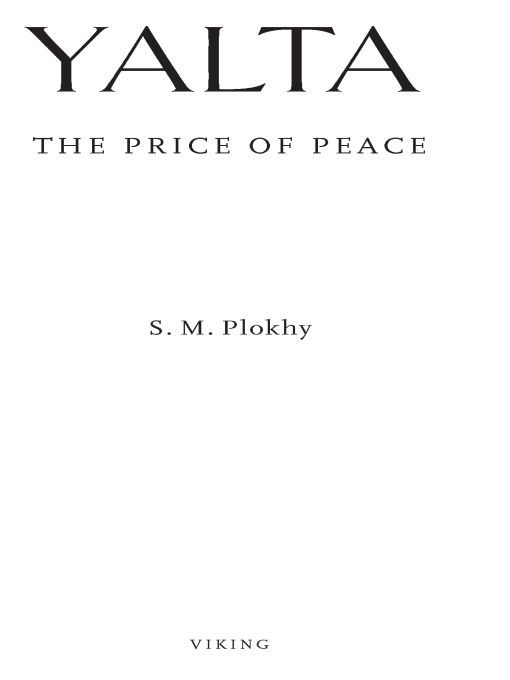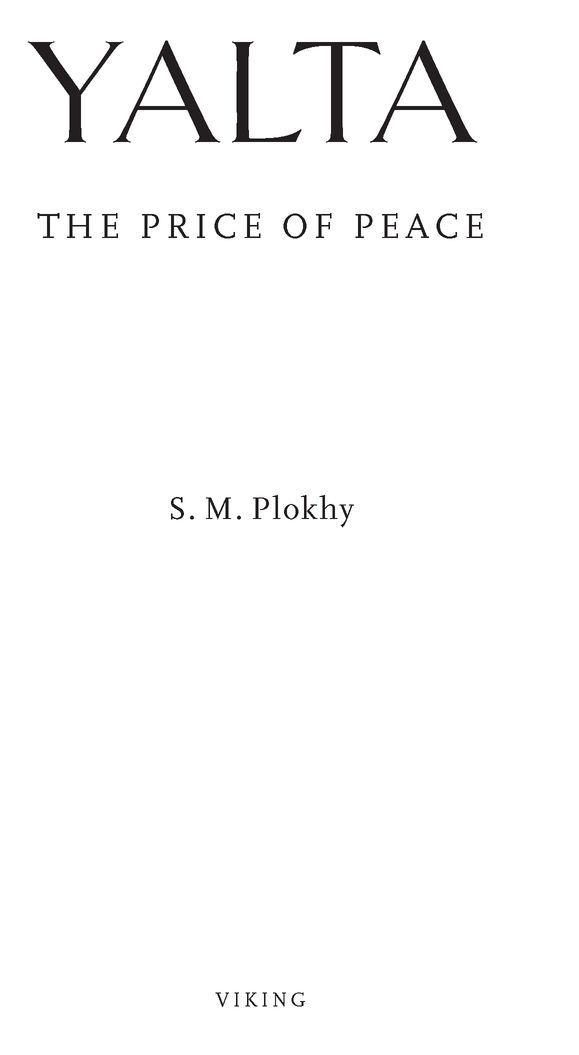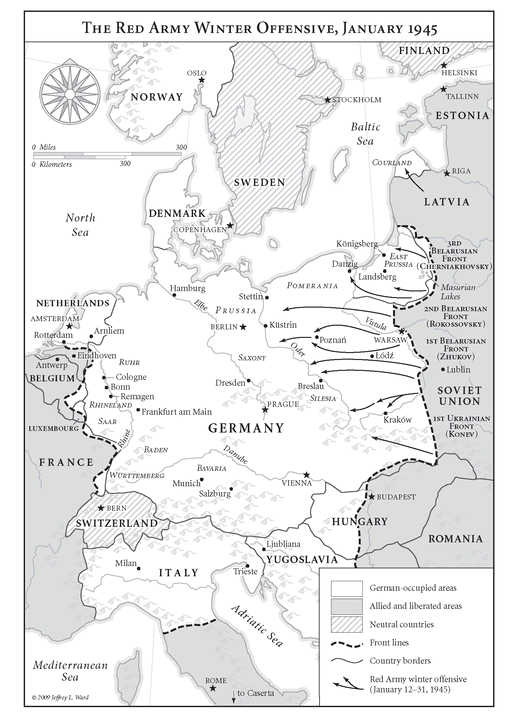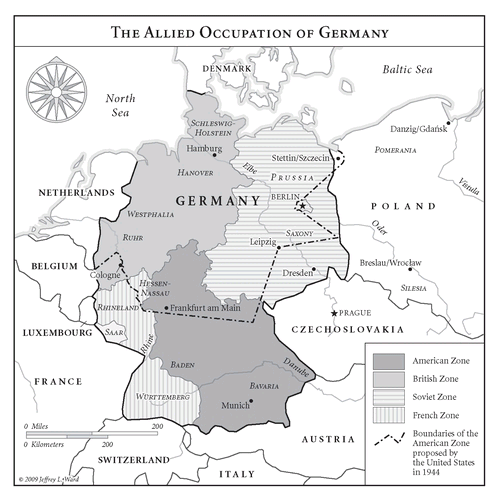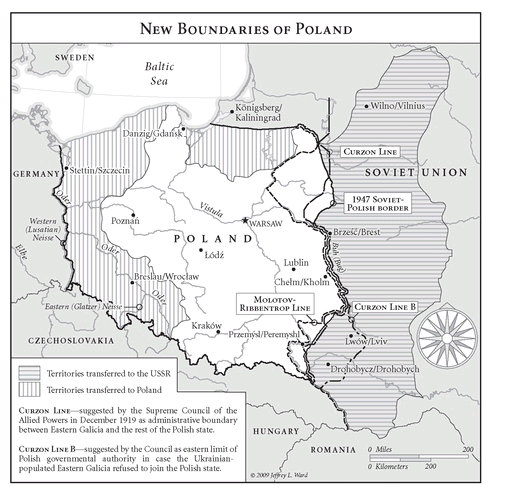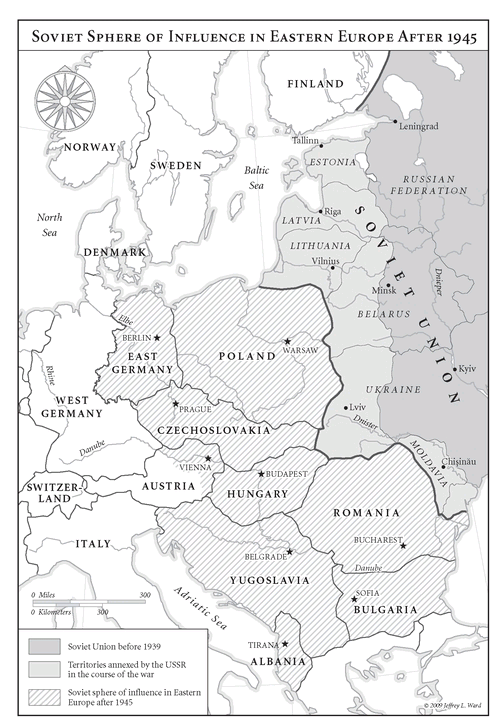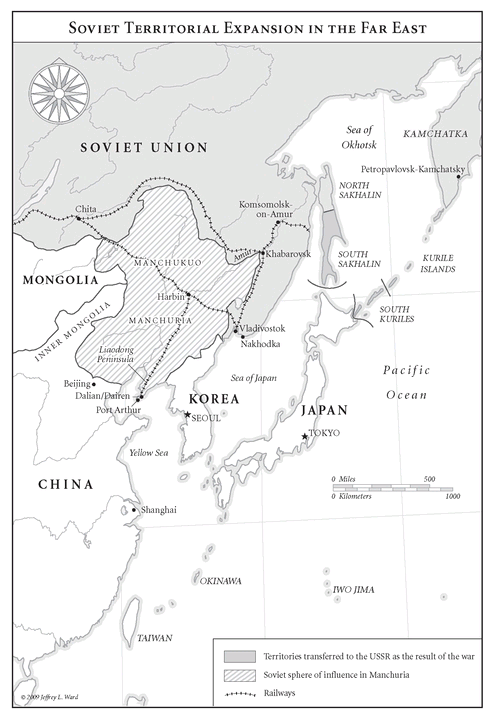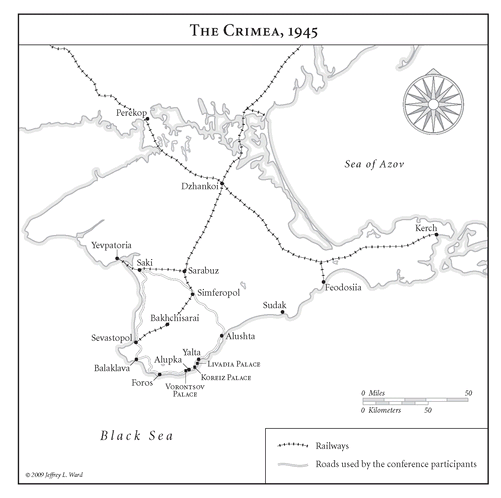Table of Contents
ALSO BY S. M. PLOKHY
Ukraine and Russia: Representations of the Past
The Origins of the Slavic Nations: Premodern Identities
in Russia, Ukraine, and Belarus
Unmaking Imperial Russia: Mykhailo Hrushevsky
and the Writing of Ukrainian History
Tsars and Cossacks: A Study in Iconography
The Cossacks and Religion in Early Modern Ukraine
For
ANDRII
and
OLESIA
The work, my friends, is peace. More than an end of this waran end to the beginnings of all wars.
FRANKLIN D. ROOSEVELT
INTRODUCTION
The time and location of the meeting were among the most heavily guarded secrets of the whole war. On the evening of February 3, 1945, under cover of darkness, a fleet of Packards brought the two most powerful leaders of the democratic world, Franklin Delano Roosevelt and Winston Leonard Spencer Churchill, to their destinationa group of villas formerly owned by the Russian tsar and prominent aristocrats near the Black Sea resort of Yalta. They called themselves the Argonauts, a reference to the ancient warriors who had traveled to the Black Sea coast to recover the Golden Fleece from a dragon who never slept. Their prize was a settlement to the war that had engulfed the world; their dragon was their host, Joseph Stalin, once a promising Georgian poet and now a ruthless dictator.
Together the three men conducted the most secretive peace conference of the modern era. They moved armies of millions and dispensed victors justice as they saw fit, deciding the fate of nations and sending millions of refugees east and west because they believed it would promote a lasting peace. They created an institution to guard that peace and the interests of the victors. They left Yalta satisfied but anxious. Behind them lay thirty years ravaged by two world wars that had cost tens of millions of human lives. Before them was the uncertainty of the postwar world.
The contest of geopolitical aspirations, the clash of egos and value systems, and the jockeying for power among the most astute negotiators their nations could produce all played out in eight days at Yalta in February 1945. The three leaders wondered about one anothers trustworthiness and readiness to compromise. Would the alumni of the best private schools of Britain and America reach an understanding with the son of a Georgian shoemaker who had dropped out of an Orthodox seminary? Would the two democratically elected leaders know how to handle the godfather of the Gulag? The conference confronted its participants with endless moral dilemmas. It was an emotional roller coaster that involved not only the leaders of the Grand Alliance but also their various subordinates, who fought for their countries interests and for the favor of their masters.
Within a few short years of the end of the conference, the high hopes of its authors were dashed, their decisions condemned by friend and foe alike. The surviving participants went on the defensive or preferred to forget their involvement. Feelings of disappointment and regret dominated on both sides of the Cold War divide. Yalta became a symbol of lost opportunity, however differently perceived. In the West, it came to be regarded as a milestone on the road to the lost peace, to cite a 1950s headline in Time magazine. In the mainstream discourse of the McCarthy era, the word Yalta became a synonym for betrayal of freedom and the appeasement of world communism.
Who was responsible? That became a central question with the onset of the Cold War in the late 1940s, when the two sides blamed each other. There were also heated domestic debates. In the United States the decisions taken at Yalta divided Republicans and Democrats. President Roosevelt and his advisers were accused not only of selling out Eastern Europe and China to Stalin but also of promoting communism at home. The highly publicized trial of Alger Hiss, a member of the U.S. delegation at Yalta who was accused of spying for the USSR, raised the temperature of the debate. Interviewed after his retirement for a book about his life, General George C. Marshall declined to make any substantive comment about his role at Yalta, certain that whatever he said would be turned against him.
Even today, public debate continues to revolve around the 1950s-era questions of who sold out Eastern Europe and whether it was in Americas interest to persuade the USSR to join the war on Japana fact attested by the reaction of American foreign-policy pundits to a statement made in May 2005 by President George W. Bush, who compared the Yalta agreements to the Molotov-Ribbentrop Pact of 1939. Public debate on the Yalta Conference has so far failed to take account of two major developments: the end of the Cold War and access to formerly unavailable Soviet documents. It has also largely ignored the progress made by professional historians of the Second World War and the Cold War in the last two decades.
The opening of the Soviet archivesthe archival revolution that followed the collapse of the USSR and coincided with the first years of Boris Yeltsins rulemade available vast quantities of new documents, including many pertaining to foreign policy. Although many aspects of Soviet history have been reassessed in light of these documents, the Yalta Conference has not. There has been no major Western study of the Yalta Conference since the end of the Cold War, and the cursory treatment of the conference in the more recent surveys of U.S. foreign policy and histories of the wartime alliance cannot do justice to the subject. This new book on the Yalta Conference takes into account the archival discoveries of the last two decades, reevaluates previously known Western sources, and considers the conference and its outcome from a new historical perspective.
Previously inaccessible Soviet documents make it possible to revisit old questions and pose new ones. They confirm some of the hypotheses advanced by previous generations of scholars, who worked without access to the Soviet archives, and refute others. Most important, the new Soviet documents reveal the mind-set of the Soviet leaders at the time of the Yalta Conference. If Stalin and his strategists did not entirely abandon their plans for world revolution, they significantly postponed them and were interested in peaceful relations with the West for at least twenty years. That would give them enough time to recover from the devastation of the world war and prepare for the next stage in the conflict between communism and capitalism, which they considered ineluctable. For the time being they were prepared to sacrifice the communist movements in Western Europe and wanted a quid pro quo from the West that would ensure their domination of Eastern Europe. In Central Europe, despite Stalins statements to the contrary, the Soviets planned to divide Germany into a number of smaller states, but their intention came to nothing because of Western opposition. There are, however, indications that in Germany the Soviets might have agreed to a demarcation line farther east than the one proposed by the British, which later served as the border between East and West Germany.



